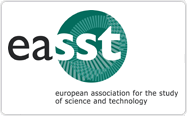Social Empiricism and Science Policy
DOI:
https://doi.org/10.23987/sts.55227Keywords:
philosophy of science, social epistemology, science policyAbstract
Miriam Solomon’s *Social Empiricism* is an exceptional work in contemporary philosophy of science in that it aims to contribute to science policy, and not merely to a philosophical debate about the social nature of scientific knowledge. In an attempt to contribute to science policy, Solomon proposes a novel theory of scientific rationality. She claims that we should evaluate scientific communities on the basis of how well they succeed in distributing research effort, instead of evaluating the reasoning and decision-making of individual scientists. We argue that Solomon’s anti-individualist theory of scientific rationality does not provide an adequate account of epistemic responsibility. We argue also that social empiricism fails to be relevant to science policy because science policy makers are not capable of identifying the kind of factors that social empiricism deems as relevant to science policy.Downloads
Published
2008-01-01
Issue
Section
Discussion Paper
How to Cite
Rolin, K. and Wray, K.B. (2008) “Social Empiricism and Science Policy”, Science & Technology Studies, 21(2), pp. 68–82. doi:10.23987/sts.55227.





